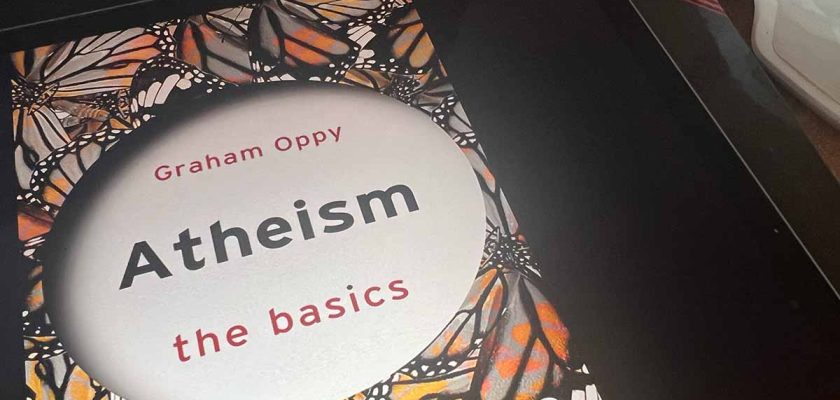Here we have something a bit different – a book that is not so much about the claims of whether there is a god or not but its goal is, as the title says, to explain the basics of Atheism.
To do this, the author examines the definition of atheism, and the history of atheism, speaks about various notable atheists from history and examines whether they really were atheists in the same sense of the word as we use the word today, or were they “merely” sceptics or something else entirely.
The definitions part of the book is very fun and without spoiling it too much, I think that Oppy has handled this part very well while still being able to inspire you to think things through and even question whether the definitions of agnosticism, atheism that you always accepted for yourself are maybe lacking or even incorrect.
If you don‘t mind having your beliefs challenged, you are going to have some fun here – and who knows, you might even rethink your views. The book certainly did that for me. If your journey to atheism has been anything like mine, you might be surprised at the definition the Author chooses to represent atheism with – he chooses to define atheists as people who believe that there are no gods.
Oppy then turns his attention to the discussions of whether atheism or religion is on the rise and examines the results of various studies, with some very thoughtful criticisms on how they are worded, whether that means that census data is flawed, and what the data shows at the end.
Next, he takes a look at some complaints against atheists and atheism in general and shows that they are mostly incorrect. For example, he takes a look at the claim that atheists simply hate god, that Atheists are immoral, that we are irrational, and so on. And because I think that we all might sometimes be too quick to dismiss some of these claims as nonsense, I find his analysis to be worthwhile reading. If for no other reason, than to see what data and logical arguments say about these claims.
Then we come to the arguments. This is a great part of the book as it concerns itself with the instrumentation on what we should consider when evaluating word views, “consistent big pictures” – for example, the philosophy of trade-offs is introduced where the “best” big pictures would be those that have favorable ”trade-offs between minimizing theoretical commitments and maximizing explanatory breadth and depth,” -Oppy, 2019.
Then, based upon this framework the author takes a look at some of our beloved claims, such as that atheism is the default position and that the burden of proof lies upon those who wish to defend the notion that God exists. Not to spoil it, but even there your beliefs will be challenged.
What is then to say at the end about this book? Perhaps it was not expected that the book with the title “Atheism: The Basics” has the potential to teach someone who has been an atheist for more than 5 years.
So, if you think that you have figured it all out, it still has the potential to teach you something. And by that, I do not only mean that you can become a better “teacher” of atheism, in the sense that by reading this book you will be able to better explain things that you already know, but by reading it you will be able to learn something about atheism you might not have known. And if that is not the best recommendation for it, I do not know what would be.

